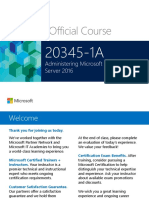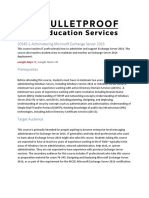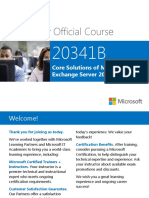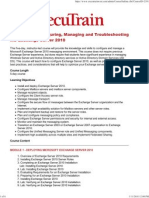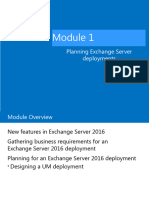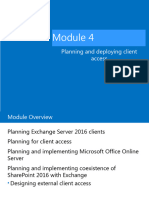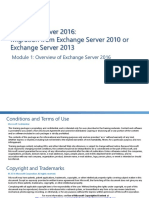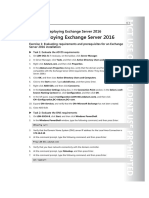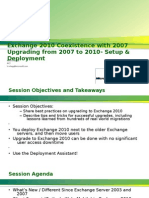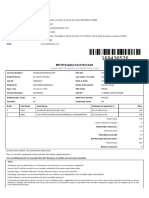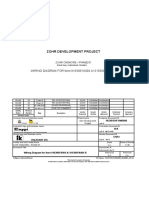0% found this document useful (0 votes)
50 views18 pagesExchange Server 2016 Course
This course covers designing and deploying Microsoft Exchange Server 2016. It discusses planning Exchange deployments and mailbox services, message transport, and client access. It also covers high availability, maintenance, security, retention, and coexistence designs. The course teaches upgrading to Exchange Server 2016 and planning hybrid deployments.
Uploaded by
smart250Copyright
© © All Rights Reserved
We take content rights seriously. If you suspect this is your content, claim it here.
Available Formats
Download as PPTX, PDF, TXT or read online on Scribd
0% found this document useful (0 votes)
50 views18 pagesExchange Server 2016 Course
This course covers designing and deploying Microsoft Exchange Server 2016. It discusses planning Exchange deployments and mailbox services, message transport, and client access. It also covers high availability, maintenance, security, retention, and coexistence designs. The course teaches upgrading to Exchange Server 2016 and planning hybrid deployments.
Uploaded by
smart250Copyright
© © All Rights Reserved
We take content rights seriously. If you suspect this is your content, claim it here.
Available Formats
Download as PPTX, PDF, TXT or read online on Scribd
/ 18
